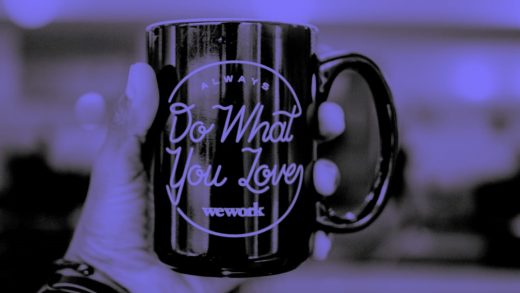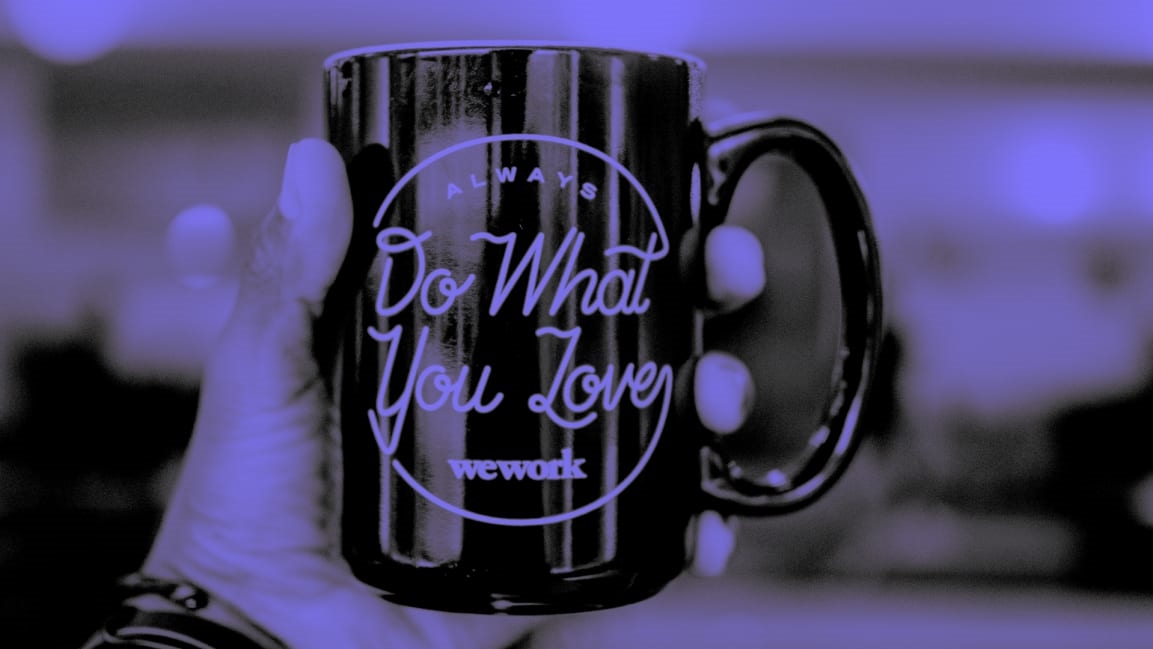This is what really brought down WeWork
In a very public and dramatic fall, WeWork, the coworking company originally valued at $47 billion, has sunk to a rescue position of a mere $5 billion, leaving many investors wondering: “Was it ex-CEO Adam Neumann’s fault?”
Neumann made plenty of mistakes that he attempted to undo, including selling a $60 million private jet and paying back the $5.9 million the company paid him to use the word “We” as a trademark. But the root of WeWork’s problem goes much deeper than an outrageous leader. In fact, it’s a problem affecting the entire market.
Rather than being an isolated incident, WeWork’s downfall is an indicator of an epidemic where good ideas are being limited by old thinking and outdated management theory. The company is one of the latest highly visible examples of an overvalued initial public offering (IPO). We’ve seen this exaggerated valuation happen before, and we’ll see it again. Uber, Endeavor Group Holdings, SmileDirectClub, and Peloton have all either failed to IPO or suffered significant dips in 2019 alone. What is actually causing these companies to lose?
They invested billions of dollars using decision bias rooted in very traditional management theories for a concept and company purely bred in a new millennium that needed more current methods of winning.”
We’re in the midst of a business renaissance—the fourth industrial revolution—but many companies, like WeWork, continue to apply old thinking rather than leverage the intelligence available to them in their decision-making processes. They’re pursuing ideas without measuring their execution readiness, and as a result, they’re falling short of their potential.
The danger of unchecked fervor
WeWork didn’t invent the coworking space. So, what elevated its valuation to $47 billion while their biggest competitor, Regus (now IWG, or International Workplace Group), has a market cap of a mere $3.7 billion?
WeWork’s valuation was based on little more than hype and unchecked fervor. The WeWork board and investors sold a concept of a coworking space that would change the world without ever stopping to measure at each funding round whether the model was still optimally positioned to win. They invested billions of dollars using decision bias rooted in very traditional management theories for a concept and company purely bred in a new millennium that needed more current methods of winning.
If the company’s board of directors had resisted the lure of biases and measured their execution readiness early on in WeWork’s expansion, they likely could have prevented many of their problems. Perhaps the company could have even lived up to its original sky-high valuation.
Instead, the board drank in the enthusiasm over the brand’s image until they were drunk on the potential of a massive return—a potential that had no chance of playing out because they weren’t measuring their ability to execute their ideas.
Some people within WeWork must have been aware that the company’s direction was wrong, but they were either ignored or overruled. It’s far more exhilarating to run with the hype than follow the data.
Leaders need to trust the data
WeWork could have saved itself if the board had stepped back to ask if they could deliver on its promises and if they had the capability to execute at every stage of expansion. They needed to measure and quantify whether they had the people, skills, and resources to successfully carry out their initiatives.
Instead of relying on data for direction, WeWork’s executives clung to old-school management theories from the 1970s that overvalued gut decision-making, experience, and intuition. The market today changes too fast for wisdom and experience to take the wheel in decision-making.
Leaders often struggle to trust the data over their own instincts because, often, the data violates what their gut is telling them to do. But leaders need to trust the data if they want to avoid WeWork’s mistakes. Data and unbiased facts, not feelings, produce reliable strategies. When pilots experience vertigo while flying at night, do they use their gut to steer the plane? No, they rely on their instrumentation. Business leaders must do the same or risk steering their companies into the ground.
Execution readiness protects us from ourselves
Everyone is susceptible to biases, whether we are aware of them or not, and data is the only protection we have against this weakness within ourselves.
The bias WeWork fell prey to is referred to as the Monte Carlo bias, named after the famous gambling destination. This bias involves putting excessive weight on previous events, believing that they somehow represent future outcomes. This behavior is more common with older leaders who believe their personal experience trumps data: “I’ve seen this before, so I know exactly how it will turn out.”
WeWork had experienced prior success in London and, without accounting for the differences in the markets, assumed the same model would work equally well in the U.S. The core of their model is to provide flex space to startups and small businesses that aren’t able to open full-sized offices, and while London had a need for such spaces, the U.S. market did not deliver the customers WeWork expected.
The company’s fatal mistake—the last in a long line of decisions not based on data—was entering Manhattan and committing to nearly $18 billion of long-term leases without properly measuring execution readiness. The cash flow associated with these leases did not cover the matching debt, or the capacity of the market to shift to the WeWork model. This discrepancy resulted in the CEO and founder’s termination while shareholders clamored for new leaders to salvage the company.
WeWork exemplifies a larger pattern of failure
WeWork isn’t the first business killed by decision bias, and it won’t be the last. Over the past 20 years, evidence indicates that many flawed decisions made by large companies were caused by errors in judgment, often based on bias, by accomplished individuals who were otherwise considered capable.
The same hype-fervor-crash cycle that overinflated WeWork is unfolding in other companies today and will continue to repeat until leaders start measuring their ability to execute initiatives.
Many of these crashes happen under the radar because the companies don’t have CEOs as outrageous as Neumann, but Neumann and WeWork are not unique. More than half of all executive initiatives fail, which points to a systemic problem in executive decision-making where leaders are pursuing initiatives that have little chance of success. They have innovative ideas with genuinely valuable potential, but they lack the capability to make those ideas happen.
How to avoid WeWork’s fate
Before charging ahead and investing in projects, leaders need a definitive answer to the question “Can my company actually deliver?” Right now, they aren’t even asking the question.
Companies make mistakes like WeWork’s all the time, but as a leader, you can avoid their failure by being mindful of biases and always making decisions based on relevant data. With every new project, you face different personalities, decision-making processes, and parameters. Even if you’ve experienced prior success, as WeWork had in London, it’s not enough to assume your results will remain static in a constantly changing world.
WeWork failed to measure their execution capability at every step of their expansion, instead of making decisions based on hype and bias. Now, it’s a cautionary tale. By neutralizing your own biases and using all the data available to you, you can ensure you are in the best position for success by identifying and removing the vulnerabilities that will impact your execution.
Alex Castro is the CEO of M Corp and the author of Measure, Execute, Win: Avoiding Strategic Initiative Debacles and Knowing What Your Business Can and Can’t Do Well.
(59)



